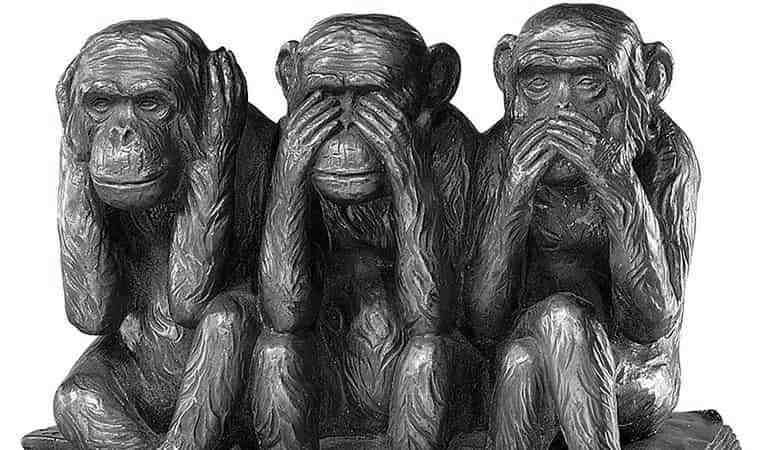
I still chuckle when I watch Rutger Bregman’s intervention at Davos a few years ago.
In 2021, not acknowledging the issue of tax evasion and its relationship with philanthropy is downright ludicrous. By now, the strategies and the volume of tax avoidance among the wealthy have been documented for every type of tax imaginable, from income to wealth to corporate tax. The phenomenon costs countries half a trillion every year.
It is widely believed, correctly, that some of the wealthy use cosmetic philanthropy as a means of reducing the social pressure that comes with this. What they give to charity is typically peanuts compared to what they could, and should, be paying in taxes.
So Bregman is right to mention taxes, but to say simply “pay more tax and go to bed” is to oversimplify.
Why is such a preposterous practice allowed to take place at all?
How can Apple be legally based in Ireland where it earns a minuscule portion of its profit, and pay virtually no tax? Why is Amazon, owned by the richest person in the world, getting tax rebates from the government, effectively paying negative tax?
Money in politics, and lobbying – that’s the simple answer. But more complicated, and more complete one, would mention the fallacy of trickle-down economics with which we’ve been brainwashed for decades. You know, the belief that somehow taxing the wealthy would slow down job creation. In parallel, we’ve been targets of a ferocious propaganda campaign that aims to discredit the government in all forms and manifestations. Give it money and it will squander it, the narrative goes. So why give it money in the first place?
Some governments are better than others, and the United States, if we take it as an example, has certainly seen done better than its famously partisan and gridlock-prone Congress of today. But, in the past, things were not that much better, and still taxes worked and things got done.
The US saw tax rates as high as 70%, and steadily above 50%, in the 1950s and the 1960s, the two decades during which living standards for the average family grew the most quickly.
Scandinavian countries, by no means immune to government scandal, routinely take more than half of the highest earners’ wages. They are some of the most consistently happiest nations on earth.
We’ve written many times on the quest for justice and fairness as being at the heart of the recent protests shaking our society. This is why the tax issue is dangerous beyond the simple matter of government’s lost revenue.
But here is where it gets tricky. Blanket accusations of tax dodging against the rich, the philanthropists, the corporations, etc. don’t make much sense. Study after study shows it to be a phenomenon limited to a small portion of the ultra wealthy (individuals and companies). To quote Guyton et al. from the above paper:
“Data from random audits alone suggests an increasing rate of tax evasion
through the income distribution up to the 99th percentile, but a sharp drop-off in the rate
of evasion by income within the top 1 percent.”
In other words, almost everyone already pays their fair share of tax, including most of the wealthy.
Warren Buffett and Bill Gates are on the record claiming that they should be paying more in taxes. A group of the ultra wealthy signed recently a letter asking to be taxed more to paid for COVID-19 relief.
Write some of that off as publicity stunts for sure. But my experience shows that, for many, those sentiments are real. This is in fact the position of most of the Altruist League members with whom I speak daily. They know that they should be taxed more, and are willing to be. The question is one of modality.
At a recent virtual event I heard calls for the wealthy to be writing huge checks to the government unilaterally to start compensating for the broken tax system. The participants gave the speaker one of those cute Zoom emoji-applauses.
I didn’t clap, and disagree with the proposal strongly. That would be a mistake, and would not solve the problem. The pressure for tax reform would diminish and the tax dodging crowd would continue behaving as they have been, ever more comfortably.
Instead, we need to act systemically. Philanthropists should support tax reform. The number of grassroots organizations pushing for this has mushroomed over the years, and some are really, really good and effective. The League has several hundred of them in our dataset, in more than 43 countries.
The target should be moderate tax levels, slightly progressive, with a simplified code and without loopholes. This would work better than complicated systems that on the surface have higher top brackets but then allow for all sorts of gymnastics. Ideally, the tax code should fit on two A4 pages.
As for the grassroots movements, they should understand that wealth is aspirational in our society, whatever they may think about it, and that bashing rich people wholesale goes down badly with the public whose support the movements are trying to enlist. The right strategy is to back the right reform and build a broad coalition for change that includes the wealthy.
Finally, a government able to collect more tax will be a stronger ally to true philanthropy, an ally that financial altruists desperately need.
Stay up to date with news and research from the Altruist League.
© The Altruist League 2015-2021
The Altruist League uses its unmatched global analyst network and cutting edge artificial intelligence model to craft for its members the best strategies for ESG reporting, sustainable investing and philanthropy with impact. Contact us to find out more.